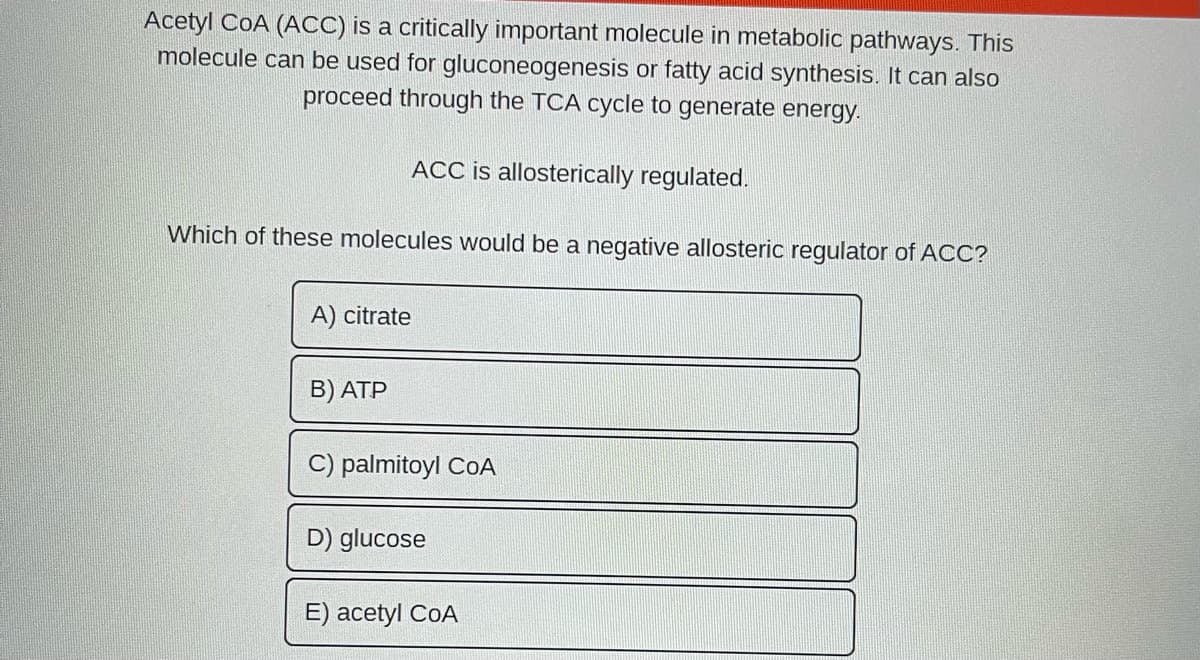Acetyl COA (ACC) is a critically important molecule in metabolic pathways. This molecule can be used for gluconeogenesis or fatty acid synthesis. It can also proceed through the TCA cycle to generate energy. ACC is allosterically regulated. Which of these molecules would be a negative allosteric regulator of ACC? A) citrate B) ATP C) palmitoyl COA D) glucose E) acetyl COA
Acetyl COA (ACC) is a critically important molecule in metabolic pathways. This molecule can be used for gluconeogenesis or fatty acid synthesis. It can also proceed through the TCA cycle to generate energy. ACC is allosterically regulated. Which of these molecules would be a negative allosteric regulator of ACC? A) citrate B) ATP C) palmitoyl COA D) glucose E) acetyl COA
Biochemistry
6th Edition
ISBN:9781305577206
Author:Reginald H. Garrett, Charles M. Grisham
Publisher:Reginald H. Garrett, Charles M. Grisham
Chapter27: Metabolic Integration And Organ Specialization
Section: Chapter Questions
Problem 20P: Figure 27.3 illustrates the response of R (ATP-regenerating) and U (ATP-utilizing) enzymes to energy...
Related questions
Question
100%

Transcribed Image Text:Acetyl COA (ACC) is a critically important molecule in metabolic pathways. This
molecule can be used for gluconeogenesis or fatty acid synthesis. It can also
proceed through the TCA cycle to generate energy.
Which of these molecules would be a negative allosteric regulator of ACC?
A) citrate
ACC is allosterically regulated.
B) ATP
C) palmitoyl COA
D) glucose
E) acetyl COA
Expert Solution
This question has been solved!
Explore an expertly crafted, step-by-step solution for a thorough understanding of key concepts.
Step by step
Solved in 4 steps

Recommended textbooks for you

Biochemistry
Biochemistry
ISBN:
9781305577206
Author:
Reginald H. Garrett, Charles M. Grisham
Publisher:
Cengage Learning

Concepts of Biology
Biology
ISBN:
9781938168116
Author:
Samantha Fowler, Rebecca Roush, James Wise
Publisher:
OpenStax College

Biochemistry
Biochemistry
ISBN:
9781305577206
Author:
Reginald H. Garrett, Charles M. Grisham
Publisher:
Cengage Learning

Concepts of Biology
Biology
ISBN:
9781938168116
Author:
Samantha Fowler, Rebecca Roush, James Wise
Publisher:
OpenStax College